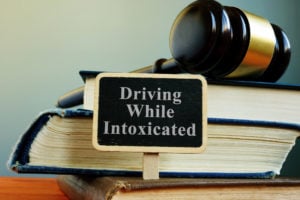
If you’re wondering what to say in court for a DWI, the best answer is usually nothing. Your Houston DWI lawyer will handle the talking, protect your rights, and guide you through every step of the process.
Speaking in court without legal guidance can hurt your case. With Blass Law by your side, you’ll know exactly when to speak, what to say, and how to present yourself in the best possible light.
What Will My Lawyer Say for Me?
What your lawyer will say on your behalf depends on the specifics. If you are at your arraignment, your attorney will:
- Enter a plea for you, which will likely be “not guilty”
- Fight for bail or a reduction in bail on your behalf if necessary
At this time, your lawyer may also attack evidence to poke holes in the prosecution’s case against you.
For a legal consultation, call (713) 225-1900
When Should I Speak?
At the beginning of your court appearance, the judge will ask you for your name; give your name, followed by “Your Honor.” The judge will then ask you if your attorney is here with you, say “Yes, Your Honor,” and your lawyer will take over from there.
What Should You Do If You Are Asked to Speak in Court?
If you are directed to speak, be polite and respectful. The judge wants concise answers, not ramblings.
Don’t:
- Raise your voice to the judge under any circumstances
- Refuse to speak
- Admit guilt
- Make excuses
- Argue (Your attorney will do that for you.)
After you’ve been arrested and booked, you will likely stay in jail until you are able to bail out, the Sheriff releases you on a general order bond or the judge at your arraignment releases you “of your own recognizance.”
As we discussed above, at your arraignment, the judge will read the charges against you, and your attorney will advise you to plead “not guilty.”
During the arraignment, your attorney can dispute the charges against you and challenge the evidence the police have.
Your attorney can work with the prosecution to:
- Get your charges dropped
- Get your charges reduced
- Possibly get you into pre-trial intervention
- Get probation
- Make a plea deal
If the judge decides to move forward with your case, your attorney will begin building a defense against the charges. Depending on the specifics, your defense may include arguing:
- Violation of your rights: If the police officer who pulled you over didn’t establish reasonable suspicion or probable cause, they have violated your rights. Any evidence collected is inadmissible.
- Inaccurate results: Inaccurate results are possible with both field sobriety tests and breath and blood tests. Our founder, Jay Blass Cohen, is a certified field sobriety testing practitioner and instructor. He knows how these tests should be administered and all the mistakes that can be made. Breathalyzer tests can lead to inaccurate results if the machine is improperly maintained, improperly calibrated, or improperly used. In other cases, inaccurate results could be the result of diet or a medical condition. For example, ketosis from the Keto diet could cause a false positive. Our founder recently got charges dismissed for a man who blew a false positive due to his body being in ketosis.
- You weren’t driving: You can only be arrested for DWI if you were driving at the time. Driving doesn’t necessarily mean the vehicle was in motion at the time you were pulled over. If the keys were in the ignition when you were pulled over, you can be charged with DWI. If we can establish that you were not driving (and your keys were not in the ignition) at the time of your arrest, we may be able to get the charges dismissed or reduced.
- The results are not admissible: The results from Breathalyzers that cops carry in their pockets are not admissible. If they did not test you with the Intoxilyzer 9000 or get a blood test at the station, they do not have a case against you.
Click to contact our Houston lawyer today
Why Trust Our Team With Your DWI Case
We’ve helped countless Houstonians through the DWI court process. We have handled all types of DWI charges in Texas and gotten many acquittals or dismissals.
- Our client, a commercial driver, was involved in an accident and failed all field sobriety tests. We got a “not guilty verdict” in the DWI misdemeanor case during a Harris County jury trial.
- Our client, who was charged with misdemeanor DWI, was found asleep in his car in the middle of the road. He failed all field sobriety tests, and a blood test found carisoprodol, meprobamate, alprazolam, hydrocodone, norhydrocodone, and dihydrocodeine in his system. We got a “not guilty” verdict.
- Our client, a lawyer, faced a second offense DWI charge after being pulled over for driving with one headlight, admitting to drinking, and failing field sobriety tests. We got a “not guilty” verdict in a Fort Bend County court.
- Our client, a habitual offender, was charged with a third offense DWI after being pulled over for failing to use a turn signal. They blew a .128 and also tested positive for alprazolam. We filed a motion to suppress in a Harris County court, and the case was dismissed.
We have the experience and skill to get cases dismissed or acquitted. Jay Blass Cohen, our founding attorney, is certified as an ACS-CHAL forensic lawyer-scientist and in chromatography for both drugs and alcohol.
Complete a Case Evaluation form now
Let Our Team Speak for You in Court
Don’t trust your case to an inexperienced criminal defense lawyer. Trust your case to a firm with a decade and a half of DWI dismissals and “not guilty” verdicts. Trust Jay Blass Cohen to speak for you in court.
Call today to get started.
Call or text (713) 225-1900 or complete a Case Evaluation form


